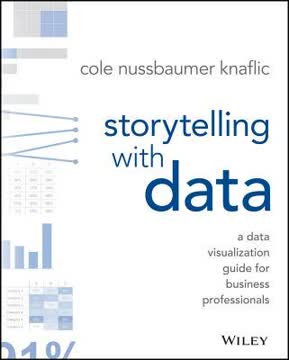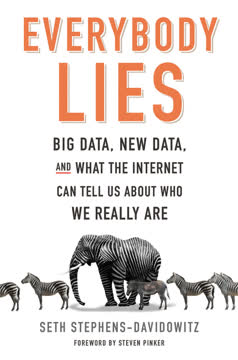Key Takeaways
1. Free markets enable both innovation and manipulation
The same human ingenuity that produces the cornucopia also goes into the art of the salesman.
Dual nature of markets. Free markets are incredibly powerful at generating wealth, innovation, and improving living standards. They allow billions of people to trade and cooperate, leading to remarkable progress. However, this same system also incentivizes manipulation and deception. Businesses are motivated to find ways to exploit human weaknesses and biases for profit.
Balancing act. The challenge is to harness the benefits of free markets while mitigating their downsides. This requires:
- Acknowledging both the positive and negative potentials of markets
- Developing regulations and consumer protections that preserve economic dynamism
- Fostering consumer awareness and resistance to manipulation
- Encouraging ethical business practices and corporate responsibility
2. Phishing equilibrium: Profit motives lead to exploitative practices
If there is a way to make a profit from our monkey-on-the-shoulder tastes, the phishermen will keep trying until they find it.
Inevitable exploitation. In competitive markets, if there's an opportunity to profit by exploiting human weaknesses, someone will eventually take advantage of it. This creates a "phishing equilibrium" where manipulative practices become widespread and normalized.
Examples of phishing equilibrium:
- Credit card companies designing products to encourage overspending
- Food companies engineering products to maximize "bliss points" of sugar, salt, and fat
- Social media platforms optimizing for addictive engagement
- Casinos using psychological tricks to keep people gambling
Systemic nature. This isn't about individual bad actors, but a natural outcome of market incentives. Addressing phishing requires systemic changes and ongoing vigilance, not just targeting isolated cases.
3. Consumer psychology makes us vulnerable to phishing
People largely think by situating themselves within a story.
Narrative thinking. Humans don't make decisions purely based on logic and self-interest. We construct narratives about ourselves and the world, which shape our choices. Marketers and manipulators exploit this by crafting stories that resonate with our desired self-image or play on our fears and aspirations.
Psychological vulnerabilities:
- Present bias: Overvaluing immediate rewards
- Loss aversion: Fearing losses more than valuing equivalent gains
- Social proof: Following the crowd
- Cognitive overload: Making poor decisions when overwhelmed
- Confirmation bias: Seeking information that confirms existing beliefs
Targeted manipulation. Modern data analytics and behavioral science allow for increasingly sophisticated and personalized exploitation of these vulnerabilities.
4. Financial markets are prone to reputation mining and crises
There are threats of corruption that are far more destructive to a democratic society than the odd bribe.
Reputation mining. Financial institutions build trust over time, but can then exploit that trust for short-term gain. This "reputation mining" was a key factor in the 2008 financial crisis, with credit rating agencies giving favorable ratings to risky securities.
Factors contributing to financial instability:
- Complex financial instruments obscuring true risks
- Misaligned incentives between financial professionals and clients
- Short-term thinking and excessive risk-taking
- Regulatory capture and inadequate oversight
Systemic risk. The interconnected nature of modern finance means that localized problems can quickly spread, threatening the entire system. This necessitates robust regulation and monitoring of financial markets.
5. Advertising and marketing strategically exploit human psychology
Advertisers have learned to target their ads with much greater precision.
Evolving sophistication. Modern advertising goes far beyond simple product promotion. It leverages deep psychological insights, big data, and advanced targeting to influence consumer behavior at a subconscious level.
Advertising techniques:
- Emotional appeals over rational arguments
- Creating artificial needs and insecurities
- Associating products with desirable lifestyles or identities
- Exploiting cognitive biases like social proof and scarcity
- Personalized targeting based on extensive data collection
Pervasive influence. The ubiquity of advertising in modern life means its effects go beyond individual purchasing decisions, shaping cultural values and social norms.
6. Politics and lobbying create a phishing equilibrium in democracy
In the phishing equilibrium, the congresspeople have dual goals: to appeal to the voters, on the one hand; and to appeal to campaign donors, on the other hand.
Distorted incentives. The need for campaign funding creates a system where politicians must cater to special interests to remain competitive. This leads to policies that often benefit donors at the expense of the general public.
Manifestations of political phishing:
- Complex legislation hiding favors for special interests
- Revolving door between government and lobbying firms
- Targeted misinformation campaigns
- Gerrymandering and voter suppression tactics
Undermining democracy. This phishing equilibrium in politics erodes public trust in institutions and can lead to policies that don't reflect the true will of the majority.
7. Food and drug industries engage in sophisticated phishing
Producers have been just as inventive in getting us to feel we need what is produced as they have been in filling the needs that we really have.
Health consequences. The food industry's focus on maximizing palatability and profit has contributed to the obesity epidemic and related health issues. Similarly, pharmaceutical companies sometimes prioritize marketability over true medical necessity.
Tactics in food and drug phishing:
- Misleading health claims and marketing
- Addictive product formulations
- Influencing medical research and guidelines
- Exploiting regulatory loopholes
- Creating and marketing to artificial needs
Regulatory challenges. The complexity of these industries and their political influence make effective regulation difficult, requiring constant vigilance and adaptation.
8. Innovation can lead to both progress and new forms of exploitation
New ideas and technical innovation do not invariably yield economic progress; some of them, instead, give new ways to phish for phools.
Double-edged sword. Technological progress brings immense benefits but also creates new opportunities for exploitation. Examples include social media platforms optimized for addiction, high-frequency trading in financial markets, and data-driven microtargeting in advertising and politics.
Balancing innovation and protection:
- Encouraging beneficial innovation while mitigating risks
- Adapting regulations to keep pace with technological change
- Promoting ethical considerations in tech development
- Educating consumers about new forms of manipulation
Ongoing challenge. As technology continues to advance rapidly, society must constantly reevaluate and adjust to new potential forms of phishing.
9. Addictive products like tobacco and alcohol exemplify phishing
No one wants to be an alcoholic. Yet rather than dissuasions, there are persuasions.
Exploiting vulnerability. The tobacco and alcohol industries have long histories of manipulating consumers, downplaying health risks, and targeting vulnerable populations. These industries exemplify how profit motives can lead to practices that harm individual and public health.
Tactics of addictive industries:
- Marketing to youth to create lifelong customers
- Lobbying against regulations and public health measures
- Funding biased research to create doubt about health risks
- Designing products for maximum addictiveness
Societal costs. The widespread acceptance and availability of these products, despite known risks, demonstrates the power of phishing equilibrium in shaping social norms and policy.
10. Regulatory efforts often fall short in preventing phishing
Just as our computers need protection against malware, so too we need protection against phishing for phools more broadly defined.
Regulatory limitations. While regulations are essential in curbing the worst abuses, they often struggle to keep pace with evolving phishing tactics. Regulatory capture, where industries influence their own regulators, further complicates effective oversight.
Challenges in regulation:
- Balancing consumer protection with economic dynamism
- Addressing complex, cross-border issues in a globalized economy
- Overcoming political opposition to meaningful reforms
- Keeping up with rapid technological and market changes
Ongoing adaptation. Effective regulation requires constant vigilance, adaptation, and a willingness to challenge entrenched interests.
11. Resistance and consumer activism can mitigate phishing effects
It is these heroes who make the free-market system work as well as it does.
Power of pushback. While systemic forces encourage phishing, individual and collective resistance can make a significant difference. Consumer activism, investigative journalism, and ethical business practices all play crucial roles in countering manipulation.
Forms of resistance:
- Consumer education and awareness campaigns
- Boycotts and public pressure on unethical companies
- Support for robust consumer protection laws
- Promotion of corporate social responsibility
- Development of alternative business models prioritizing ethics
Cultural shift. Fostering a culture that values transparency, ethics, and long-term thinking can help create a more resilient society less susceptible to phishing.
Last updated:
FAQ
What's Phishing for Phools about?
- Explores economic manipulation: The book examines how free-market systems can lead to manipulation and deception, using the term "phishing" to describe how businesses exploit consumer weaknesses.
- Phishing equilibrium concept: Akerlof and Shiller introduce "phishing equilibrium," where businesses exploit consumers' psychological and informational vulnerabilities to maximize profits.
- Real-world implications: The authors provide examples from finance, advertising, and politics, showing how these dynamics affect everyday life and decision-making.
Why should I read Phishing for Phools?
- Understanding market dynamics: The book offers insights into hidden forces in free markets, helping readers become more informed consumers and citizens.
- Awareness of manipulation: It equips readers to recognize and resist manipulation in purchasing decisions, promoting better financial and personal choices.
- Broader economic perspective: The authors challenge conventional economic theories, encouraging critical thinking about market behavior's societal implications.
What are the key takeaways of Phishing for Phools?
- Phishing is pervasive: Manipulation and deception are inherent in free-market systems, affecting consumers in various contexts.
- Psychological and informational phools: Consumers are categorized into psychological and informational phools, highlighting how emotions and misinformation lead to poor decisions.
- Role of regulation: The authors argue for regulatory frameworks to protect consumers from market vulnerabilities.
What is the definition of "phishing" in Phishing for Phools?
- Broader meaning of phishing: "Phishing" is defined as getting people to do things that benefit the "phisher" at the expense of the "phool."
- Historical context: The term is adapted from its internet definition, extending to all forms of manipulation in economic transactions.
- Two types of phools: The book distinguishes between psychological phools, swayed by emotions, and informational phools, acting on misleading information.
How does Phishing for Phools relate to consumer behavior?
- Consumer vulnerabilities: Consumers are often unaware of psychological and informational traps set by businesses, leading to poor financial decisions.
- Importance of vigilance: The book encourages consumers to be vigilant and informed, recognizing tactics used by marketers and financial institutions.
- Empowerment through knowledge: Understanding phishing dynamics helps consumers make better choices and resist manipulation.
What is "phishing equilibrium" as described in Phishing for Phools?
- Economic equilibrium concept: "Phishing equilibrium" refers to a market state where businesses exploit consumer vulnerabilities for profit, leading to widespread manipulation.
- Inevitability of phishing: In a competitive market, opportunities for phishing will always be taken as businesses seek to maximize profits.
- Impact on society: This equilibrium creates a cycle of deception affecting individual consumers and the economy's overall health.
What role do regulations play in combating phishing according to Phishing for Phools?
- Need for oversight: Regulations are essential to protect consumers from manipulative practices inherent in free markets.
- Historical context: Past regulatory successes, like the Pure Food and Drug Act, aimed to protect consumers from harmful products.
- Challenges in enforcement: Despite regulations, businesses often find ways to circumvent rules, necessitating ongoing vigilance and adaptation.
How does Phishing for Phools relate to behavioral economics?
- Integration of psychology: The book builds on behavioral economics principles, examining how psychological factors influence economic decisions.
- Cognitive biases: Various cognitive biases, such as loss aversion and present bias, make individuals susceptible to phishing.
- Implications for policy: Recognizing these behavioral tendencies is essential for effective economic policy and regulation.
What are some examples of phishing discussed in Phishing for Phools?
- Financial crises: The 2008 financial crisis is analyzed, attributing it to reputation mining and manipulation of complex financial products.
- Advertising tactics: Advertisers exploit consumer weaknesses through targeted marketing strategies that play on emotions and cognitive biases.
- Political manipulation: Political campaigns use similar tactics to influence voter behavior, often prioritizing donor interests over public welfare.
How does Phishing for Phools suggest we can resist phishing?
- Awareness and education: Being aware of psychological biases and manipulative tactics empowers consumers to make informed decisions.
- Regulatory measures: Stronger regulations are advocated to protect consumers from deceptive practices, creating a fairer marketplace.
- Critical thinking: Adopting a critical mindset when evaluating information helps individuals guard against manipulation.
What are the psychological aspects of phishing discussed in Phishing for Phools?
- Cognitive biases: Cognitive biases, such as loss aversion and overconfidence, can lead consumers to make poor decisions benefiting businesses.
- Emotional manipulation: Emotions can override rational decision-making, making consumers more susceptible to phishing tactics.
- Narrative influence: The power of storytelling in advertising and marketing can shape consumer perceptions and choices.
What are the best quotes from Phishing for Phools and what do they mean?
- "Expect to be manipulated": This quote encapsulates the book's central theme, urging readers to recognize inherent manipulation in free markets.
- "We are all phished for phools": This statement highlights the universality of phishing, suggesting no one is immune to manipulation.
- "The economy is filled with trickery": This quote reflects the view that deception is fundamental in the economic system, necessitating awareness and regulation.
Review Summary
Phishing for Phools receives mixed reviews, with criticism for its repetitive style, oversimplification of complex economic concepts, and focus on American examples. Some readers appreciate its exploration of market manipulation and consumer exploitation, while others find it lacking depth and originality. The book's central argument about the prevalence of deception in free markets is generally understood, but its execution and proposed solutions are often seen as inadequate. Overall, readers acknowledge the importance of the topic but are divided on the book's effectiveness in addressing it.
Similar Books










Download PDF
Download EPUB
.epub digital book format is ideal for reading ebooks on phones, tablets, and e-readers.





